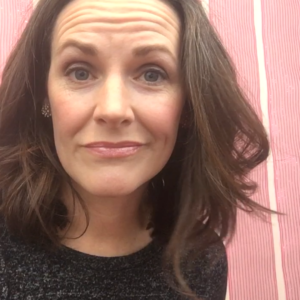Most gifted kids don’t go on to win Nobel prizes or change the world. Certainly some do, but they are the exception in an already exceptional group. Many dynamics influence people’s futures and many ways to be gifted, but social factors influence us more than we realize.
In the preface to her book Smart Girls in the 21st Century, author Barbara Kerr, Ph.D. (written with Robyn McKay, Ph.D.) recounts a time when she and her peers were billed as the “Leaders of the Tomorrow” after studying in a new, gifted education program. Years later, at their reunion, she saw men had gone on to succeed in their respective professions, but the women had less so, becoming mostly homemakers, teachers, or nurses. Recognizing this, another student-friend suggested a new area of research by asking: “Why don’t you figure out why we’re not the Leaders of Tomorrow?”
This question intrigues me.
Kerr’s experience resembles my own. I was also in a gifted program growing up in my local public school. Nothing crazy elite, but still with high academic expectations. As I maneuvered my way through life, I never thought much of my experience until I got old enough to glance back with a hint of wisdom. I can see patterns now that held me back. Things that I never knew I needed to know. In university, both undergraduate and graduate school, I studied gender and sociology. Even knowing the dynamics that exist and how they show up, my own choices led me toward being a full time parent building their own business on the side. My own career success was last on the list of things that seemed important.
How did I fall into old, gendered patterns even when I knew better?
Even though we’ve made social strides in gender equality, one cannot ignore gender dynamics and generational patterns (in which gender roles and beliefs are embedded) when talking about success. While Kerr’s experience was years ago, similar forces impact all of us today. Even though women have dynamic careers with or without managing families, there still seems to be more obstacles that appear in their path. Perhaps they are external obstacles, such as caregiving or other life events, and perhaps they are internal obstacles regarding beliefs about self and what’s possible. You would think that if anyone could buck the system, it would be the ‘leaders of tomorrow’ or those individuals deemed bright enough to change the world.
We now know that beliefs, patterns, and even trauma (both big “T” and little “t”) get passed down through families both physically and emotionally. We also know that sometimes being gifted can both mask other learning challenges and/or be combined with them to create complex individuals who may not thrive in the traditional ways parenting, schooling, and work. Looking at all of these factors through the lens of gender and generations could provide a picture of how to finally shift out of the limiting patterns that still linger.
It’s so interesting that I’m writing a book about it!
Working with the Gifted Homeschoolers Forum Press, I’ll be gathering data from willing participants through both an online survey and interviews. The questions focus on gender and generational patterns within gifted/2e families. (You don’t need to be a homeschooling family to participate.)
You might ask: Who’s gifted? What’s twice-exceptional? Do I qualify?
While I’m focusing on the gifted/2e population, the lines are not crystal clear. If you are a parent who has gifted/2e children, I’m interested in you. That means your children excel naturally in some area, usually academic, but not always. If they are twice-exceptional, then they are gifted PLUS learning challenged in some way. Common challenges are ADHD, dyslexia, autism, and many other challenges. If you believe you and your family fit this profile, that’s enough for me. I do not need tests results or diagnosis reports. Though I know it’s not always the case, I know many parents who have gifted/2e children are also gifted/2e themselves. You can let me know about that in the survey.
If you want to take part in the book’s research, CLICK HERE to take the survey. At the end of the survey, there’s an option to volunteer to be interviewed as well. I’m hoping to talk to as many people as possible!
The exciting part of this book and its methodology is that I could find anything! Perhaps none of this is an issue any longer or there’s a whole new angle I’d not considered? I’ll be looking for things that go against my assumptions as well as nuance that makes the story more interesting. The questions will hopefully make you think about your family from a different perspective.
Grab a cup of tea and see for yourself.
Here’s the link again!
Thank you!!
Hi, I'm Cara Maclean and I want to see you thrive. I coach (former) rule-following moms who've realized the rules don't work. You're smart (gifted even), maybe with neurodiverse kids, and simply too good at making life work for everyone else. Let's make it work well for you too. Fabulously well. Oh, and I've also got a book coming soon, through GHF Press! 🥳
If you're ready thrive on your terms, sign up for a free 30 minute consult call here!

